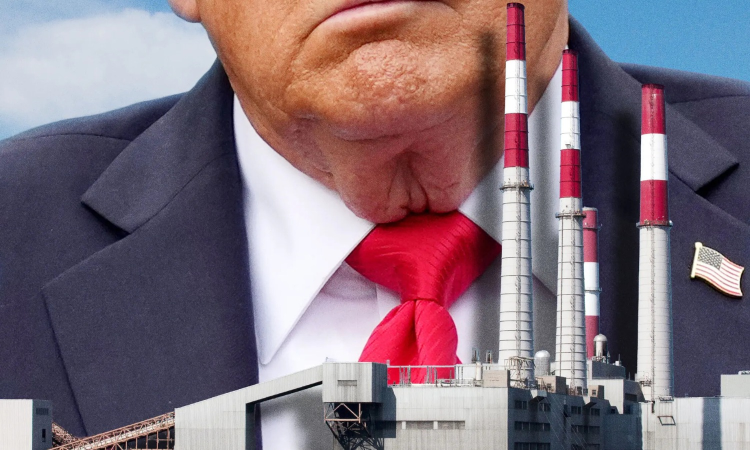Dragon's playbook: Copying China is a terrible idea
America’s economy has been struggling to deliver broadly felt progress for some time, a failure especially evident in the shrinking middle class and its declining opportunities

Whether Americans realise it or not, the Trump administration is trying to engineer a radical reconstruction of capitalism in the United States. The new model looks more like China’s, which allows private-sector development but emphasises government ownership and control. Various academics and politicians — many of whom have never run a business — are arguing that this is a wise model.
It is not.
We know from a century of evidence and a lifetime of practice that healthy economies grow from innovation that produces wealth. America’s economic system, built on three pillars — innovation, a big market, and a stable rule of law — has been one of its greatest strengths and unique advantages. Do we need to do a better job of distributing the gains from America’s economic success? Clearly. Is state-controlled industry and planning the way to do that? Absolutely not.
America’s economy has been struggling to deliver broadly felt progress for some time, a failure especially evident in the shrinking middle class and its declining opportunities. We hear this echoed in populist calls from both left and right. But the way to restore faith in American capitalism is not to discard it in favour of a Chinese-style approach. That model is showing signs of failure in China after an initial burst of success.
Trump is dangerously close to copying its mistakes. Take three of his recent moves. First, in June, his administration pushed a “golden share” arrangement in the merger of Nippon Steel and US Steel, ensuring the government a veto right over key decisions — a tool straight out of Beijing’s playbook. Second, last month, the administration took a 10% stake in Intel, making Washington a shareholder in one of America’s most important tech firms. And third, Trump has turned tariffs into a tool for political favouritism, granting exemptions to preferred companies in exchange for loyalty and concessions. Together, these steps blur the line between private enterprise and state ownership, substituting political calculation for competitive discipline and market-driven innovation.
To be sure, there are times when state intervention in markets is appropriate. But government intervention damages the economy when it singles out individual companies instead of offering a broader program to support an industry, engage in general R&D, or build infrastructure. Programs that apply transparent rules fairly preserve competition, while political favouritism distorts it. When the government — or an individual official — handpicks winners and losers, it undermines markets and rewards inside access.
That is exactly what’s happening now. Commerce Secretary Howard Lutnick has suggested that, in addition to Intel and Nippon Steel, Washington could buy into military contractors such as Lockheed Martin, Boeing, and Palantir. The White House has pushed chip makers like Nvidia and AMD to give a share of revenue from sales in China to the US government, providing it a stake without formal ownership. It is not clear how these equity stakes will be held or managed (for instance, who will decide when to sell them). These moves are fundamentally changing the relationship between the private sector and the state.
While libertarians and traditional conservatives in the MAGA coalition have objected to the administration’s infringement on economic liberty, some on the left, such as Senator Bernie Sanders, have applauded its steps toward state ownership, arguing that Americans deserve a share of the profits from companies that receive federal money.
There are certainly cases in which this can make sense. After the Great Recession, banks should have compensated the US for bailing them out. And when Tesla received $465 million in loans during a precarious moment in its existence, a stake in the company would have been an appropriate return. Tesla paid the loan back early and with interest, but the public never received proportionate compensation.
The Trump administration is handing out or imposing deals arbitrarily and retroactively. The danger is evident: The government is not stepping in to solve a true crisis, protect taxpayers, or advance the nation’s strategic priorities; it is perverting markets in favor of politically connected companies and hampering innovation. In other words: crony capitalism.
And perhaps most dangerous, the Chinese model relies not just on favouritism but also on fear — fear of crossing the government or simply of being overlooked by party elites. In 2023, reports began surfacing of disappeared Chinese founders and executives. The risk of unwanted attention from President Xi Jinping is destroying the incentive to take risks.
We see this fear taking hold in the US, with company officials across industries genuflecting to Trump or simply trying to stay out of his line of fire. Trump is also exploiting popular discontent with the US economy, but state capitalism corrodes even the strongest systems, as China’s stagnation shows. We abandon the American model at our peril.
The New York Times



